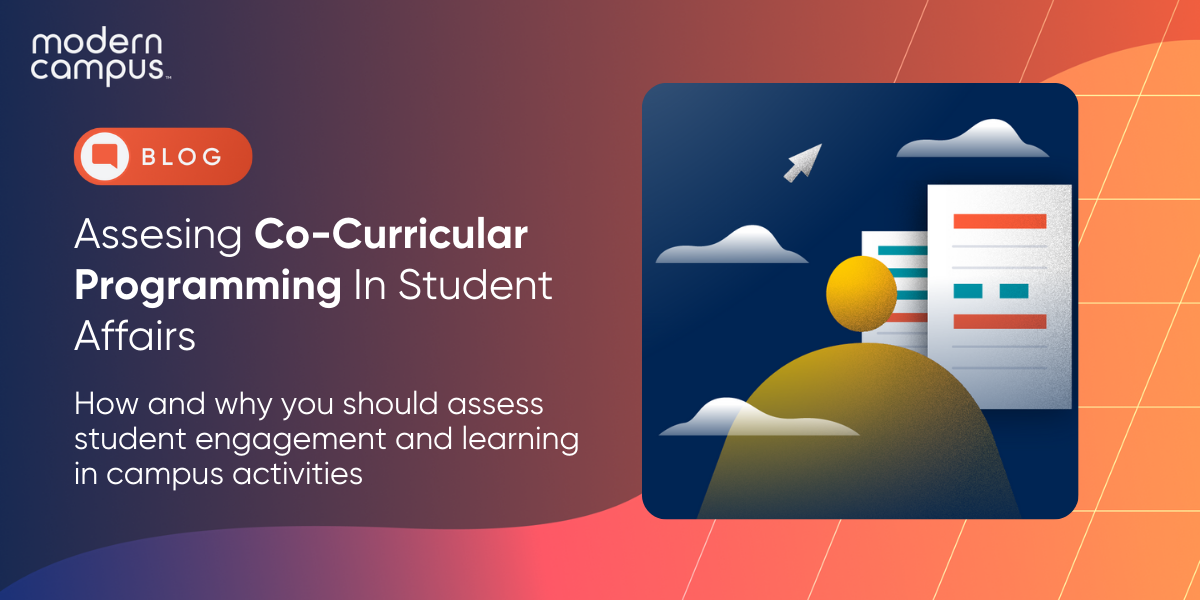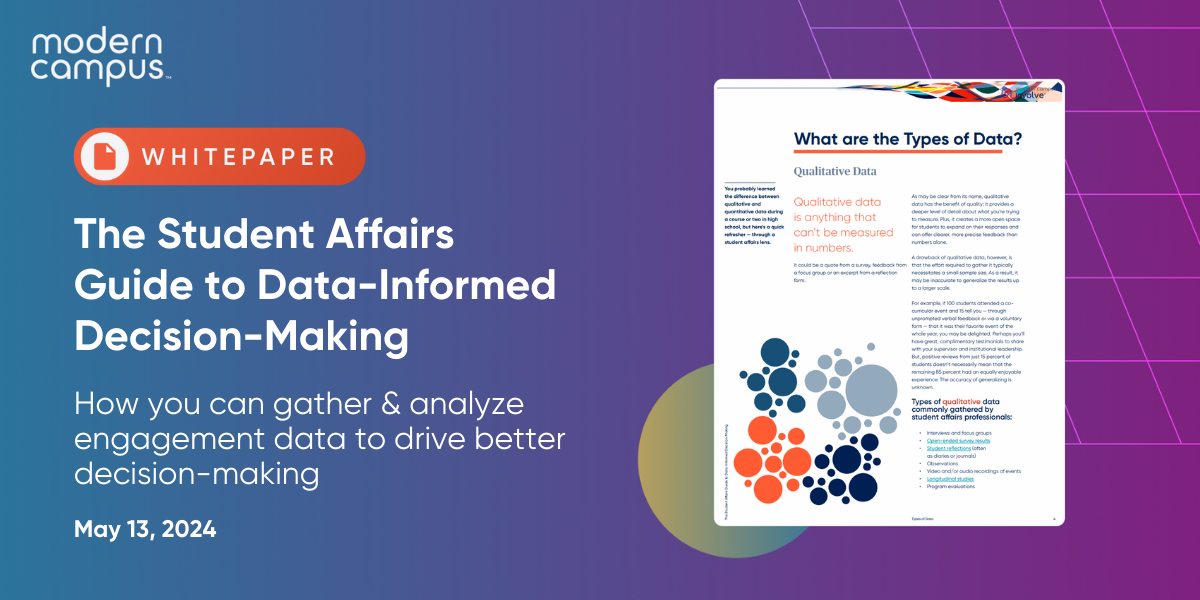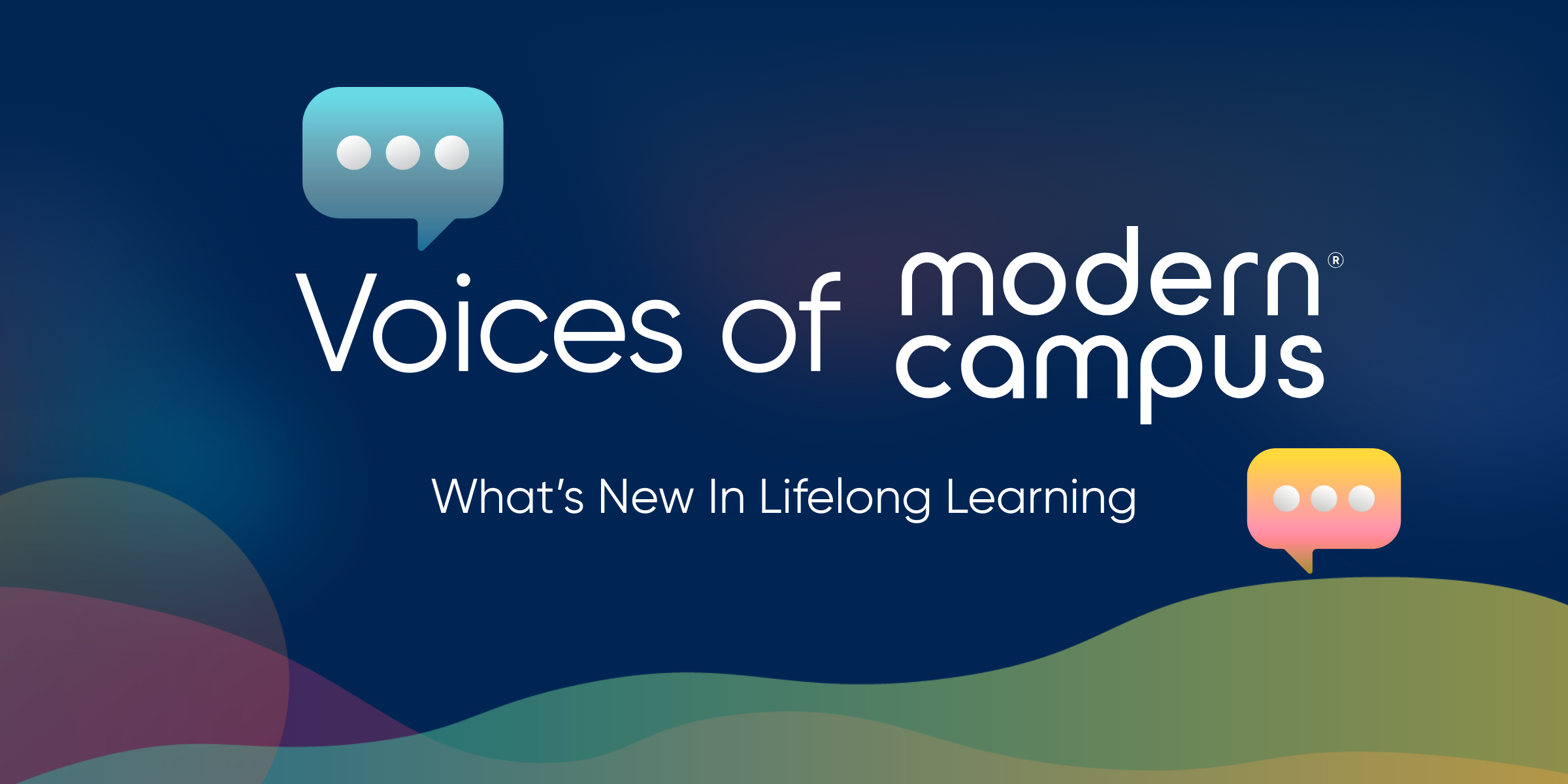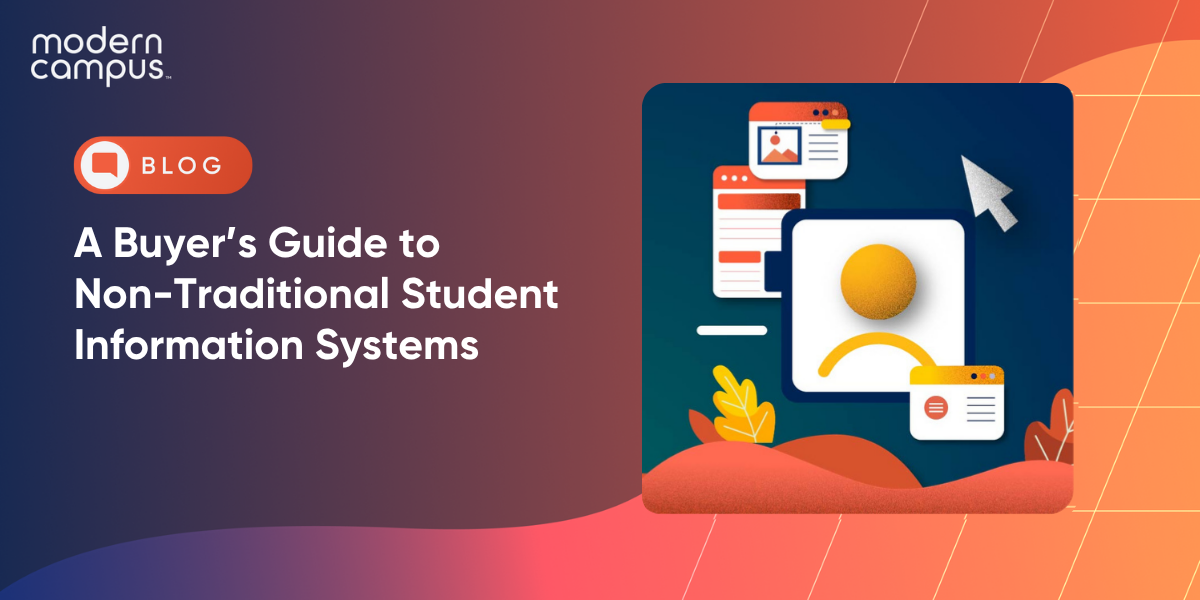Assessing Co-Curricular Programming in Student Affairs
While academics take center stage at institutions, the co-curricular programs provided to students offer unmatched value. Far more than just extra credit, these offerings are essential components of the student experience, enriching their time on campus.
From student body government to campus-wide celebrations, these programs and events are invaluable for honing interpersonal skills and fostering networks that could lead to future opportunities. When students feel fully integrated into the campus community, it not only enhances retention rates but also reduces dropout numbers, as they become deeply engaged in an environment they wouldn't want to miss out on.
The importance of program assessment
Consistently evaluating these programs is essential to ensuring their continued effectiveness and relevance. When programs are given less attention, students can pick up on it, leading to disengagement and minimal involvement. Just as institutions regularly assess academic programs, ongoing evaluation of co-curricular offerings is vital for sustaining student engagement and fostering campus growth.
Enhancing program quality
These programs, though designed for students, are often overseen by faculty and staff navigating limited resources. When these initiatives are neglected, students sense it, leading to reduced participation. Regularly assessing these programs, akin to academic evaluations, offers valuable insights into student engagement, fostering opportunities for improvement.
Ensuring learning outcomes
Student engagement plays a crucial role in retention. Valdosta State University found that next-term enrollment increased by 13 percentage points for students who attend at least 10 events per semester. Similarly, Arkansas Tech University found that first-year students engaged in community service achieve a remarkable 94% retention rate —22 percentage points higher than their non-engaged peers.
Overcoming challenges in program assessment
While institutional stakeholders typically understand the importance of regularly assessing academic programs, they may underestimate the value of doing the same for student activities and co-curricular programming. This oversight can lead to these programs being sidelined, harming student engagement rates and retention. Overcoming common challenges in program assessment ensures regular evaluation, enhancing offerings to best suit the needs of the students.
Resistance to change
As institutional stakeholders evaluate their offerings, faculty facilitating these programs may resist potential changes. To overcome this challenge, fostering open communication with other departments and involving key faculty and staff in the assessment process can encourage collaboration and drive progress.
Resource constraints
Limited budgets, time and staffing can present challenges for effective program implementation and improvement. Institutions can overcome these obstacles by prioritizing assessment efforts and leveraging available technology. Streamlining assessment processes not only optimizes resource usage but also yields valuable data to inform decision-making and enhance program effectiveness.
Data interpretation complexity
Navigating the complexities of program assessment can be daunting, particularly when interpreting data. However, technology innovations like Modern Campus Involve provide access to robust data analytics, user-friendly visual reporting and customizable metrics, which simplify assessment and empower informed decisions for program enhancement.
How to assess a program in higher education
Recognizing the value in enhancing the student experience is crucial for improving co-curricular programming and thereby increasing retention. By understanding the importance of student activities, institutions can begin allocating resources and attention accordingly, leading to a more comprehensive approach to student success.
The key components for program assessment
Program assessment relies on several key components: establishing clear goals, objectives, and KPIs; selecting appropriate assessment methods such as surveys, polls, focus groups and participation data collection; and ensuring alignment between the program curriculum and its objectives. These elements work together to provide comprehensive insights for informed decision-making and program enhancement.
Implement regular evaluation cycles
Regular evaluation cycles are crucial for maintaining program effectiveness in higher education. Instituting structured assessment frameworks enables consistent data collection and analysis, fostering continuous improvement aligned with student needs and institutional goals. Through ongoing assessment, institutions can adapt, optimize resources and drive positive outcomes for students and stakeholders.
Involve key stakeholders
Engaging key stakeholders in the evaluation process is crucial for fostering understanding and buy-in for assessment efforts. Involving faculty, staff and students ensures a sense of ownership and accountability for program success. Collaboration also enriches the assessment process, leading to more meaningful and actionable findings. When stakeholders recognize the value of their contributions, they are more likely to invest in assessment efforts, driving positive change.
Collect and analyze data
Through methods like surveys, focus groups and participation data, institutions gather valuable information on student engagement and program effectiveness. Analyzing this data allows for evidence-based decision-making, enabling institutions to identify trends, strengths and areas for improvement.
Apply actionable strategies
Institutions can develop targeted strategies to address challenges and capitalize on strengths by identifying areas for enhancement and applying proven and actionable approaches. This includes establishing clear communication channels, providing training and support, leveraging diverse assessment methods and implementing accountability measures.
Through these efforts, institutions foster a collaborative and impactful approach to program assessment and improvement.
Technology utilization
Technology has become integral to program assessment, enhancing institutions' ability to gather and analyze data for improved student experiences. Student Co-Curricular Management Involve automates data maintenance tasks, provides real-time analytics for event assessment and offers intuitive visual reporting tools.
Additionally, Involve enables cross-correlating tags for a more accurate understanding of student needs and provides pre-structured data for first-time assessors. Leveraging these advancements optimizes assessment efforts and drives positive outcomes in student success initiatives.
Embrace continuous improvement
Institutions committed to program quality and student experiences prioritize continuous improvement. By fostering a culture of ongoing reflection and feedback, they identify areas for growth and implement iterative changes to drive positive outcomes. Engaging stakeholders at all levels encourages collaboration and innovation, ensuring programs evolve to meet changing needs. Through regular assessment and data-driven decision-making, institutions embrace continuous improvement as a cornerstone of their mission.
Evaluating your institution’s co-curricular programming is crucial for attracting, supporting and graduating workplace-ready learners. By staying open to new ideas, keeping communication flowing and involving multiple departments, universities can continually improve how they engage with students outside of the classroom.
Last updated: May 13, 2024





